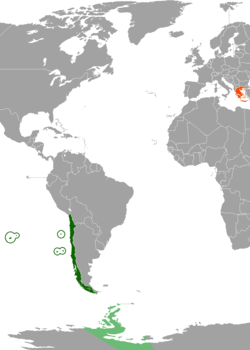 | |
Chile | Greece |
|---|---|
Chile-Greece relations are the bilateral relations between Chile and Greece. Both nations are members of the United Nations.
 | |
Chile | Greece |
|---|---|
Chile-Greece relations are the bilateral relations between Chile and Greece. Both nations are members of the United Nations.
